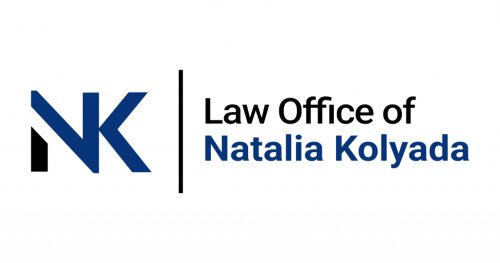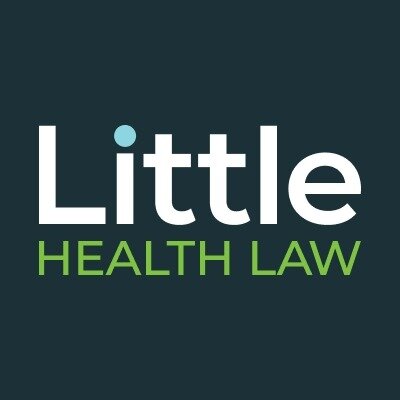Best FDA Law Lawyers in Georgia
Share your needs with us, get contacted by law firms.
Free. Takes 2 min.
Or refine your search by selecting a city:
List of the best lawyers in Georgia, United States
About FDA Law in Georgia, United States
FDA Law refers to the set of federal rules and regulations established by the U.S. Food and Drug Administration (FDA) to oversee the safety, efficacy, and security of food, drugs, medical devices, cosmetics, and other products. In Georgia, FDA Law is primarily governed by federal standards but also involves state agencies that operate in parallel. Businesses and individuals dealing with food, drugs, medical devices, or related products must comply with both federal and state requirements. Failure to adhere to FDA regulations can result in severe penalties, recalls, and legal challenges.
Why You May Need a Lawyer
Navigating FDA Law can be complex, especially when local and federal regulations intersect. You may need a lawyer specializing in FDA Law in several situations:
- Launching a new food, drug, supplement, or cosmetic product on the market
- FDA compliance audits or investigations of your business
- Product recalls or adverse event reporting requirements
- Labeling or advertising disputes involving FDA-regulated products
- Civil or criminal enforcement actions from the FDA or Georgia agencies
- Obtaining FDA approvals or clearances for drugs or medical devices
- Responding to warning letters, import alerts, or detention of products
- Defending against allegations of misbranding or adulteration
Local Laws Overview
While FDA Law is mostly federally governed, the Georgia Department of Agriculture and the Georgia Department of Public Health also enforce state-specific laws compatible with FDA regulations. Key aspects of local laws relevant to FDA Law in Georgia include:
- Licensing and permitting requirements for food manufacturers, processors, and sellers
- State inspections of food establishments and enforcement of food safety standards
- Additional labeling and health regulations for certain products and supplements
- Coordination between state and FDA agencies during joint investigations or enforcement actions
- Specific requirements for local drug, medical device manufacturers, and compounding pharmacies
- Unique notification and recall procedures in Georgia
Frequently Asked Questions
What is the FDA and what authority does it have in Georgia?
The FDA is a federal agency responsible for regulating food, drugs, cosmetics, medical devices, and more in all U.S. states, including Georgia. It sets and enforces national standards for these products.
Are FDA regulations different in Georgia compared to other states?
FDA regulations are federal and apply nationwide, but Georgia also has state laws and agencies that can enforce additional requirements or standards that go beyond federal regulations.
Who enforces FDA regulations locally in Georgia?
The FDA works with Georgia state agencies such as the Georgia Department of Agriculture and the Georgia Department of Public Health to enforce federal and state law requirements.
Do I need FDA approval to start a food-related business in Georgia?
Not all food businesses need FDA approval, but they must register with the FDA and comply with FDA regulations. State permits and inspections by Georgia agencies are also required.
What should I do if I receive an FDA warning letter or notice in Georgia?
You should consult an attorney experienced in FDA Law right away. You may need to respond formally, correct violations, and prepare for possible further enforcement action.
How do Georgia laws impact dietary supplements and herbal products?
Georgia may have additional labeling, licensing, and manufacturing requirements for supplements and herbal products. Compliance with both FDA and state law is essential to avoid penalties.
What are my responsibilities if I discover a safety issue with my FDA-regulated product?
You must follow required FDA reporting and recall procedures, and you may need to notify Georgia state authorities as well. Prompt action can help minimize legal and public health risks.
Can the FDA shut down my business in Georgia?
The FDA can take enforcement actions including shutting down facilities, seizing products, and seeking recall or injunctions, especially in cases of serious violations affecting public health.
What are the penalties for breaking FDA law in Georgia?
Penalties can include civil fines, criminal charges, product recalls, business closures, and reputational damage. State agencies may also impose separate penalties for state law violations.
How do I find a lawyer experienced in FDA law in Georgia?
Look for attorneys with experience in FDA regulatory matters and knowledge of Georgia-specific food, drug, and health law. Referrals from local bar associations or industry groups can be helpful.
Additional Resources
If you need more information or assistance, these resources can be valuable:
- U.S. Food and Drug Administration (FDA) - Main regulatory authority for food and drugs
- Georgia Department of Agriculture - Enforces food safety and licensing at the state level
- Georgia Department of Public Health - Oversees public health aspects and inspections
- State Bar of Georgia - Offers referrals to licensed attorneys in relevant practice areas
- Georgia Food Industry Association - Provides compliance guidance for food businesses
Next Steps
If you need legal help with an FDA Law issue in Georgia, take these steps:
- Document your situation thoroughly, including any communications from regulators
- Gather important paperwork, such as licenses, permits, labeling, and prior correspondence
- Contact a lawyer who specializes in FDA regulatory matters and Georgia state law
- Consult local and federal resources or agencies for additional guidance
- Act promptly to avoid missing deadlines and worsening potential penalties
Lawzana helps you find the best lawyers and law firms in Georgia through a curated and pre-screened list of qualified legal professionals. Our platform offers rankings and detailed profiles of attorneys and law firms, allowing you to compare based on practice areas, including FDA Law, experience, and client feedback.
Each profile includes a description of the firm's areas of practice, client reviews, team members and partners, year of establishment, spoken languages, office locations, contact information, social media presence, and any published articles or resources. Most firms on our platform speak English and are experienced in both local and international legal matters.
Get a quote from top-rated law firms in Georgia, United States — quickly, securely, and without unnecessary hassle.
Disclaimer:
The information provided on this page is for general informational purposes only and does not constitute legal advice. While we strive to ensure the accuracy and relevance of the content, legal information may change over time, and interpretations of the law can vary. You should always consult with a qualified legal professional for advice specific to your situation.
We disclaim all liability for actions taken or not taken based on the content of this page. If you believe any information is incorrect or outdated, please contact us, and we will review and update it where appropriate.
Browse fda law law firms by city in Georgia
Refine your search by selecting a city.














